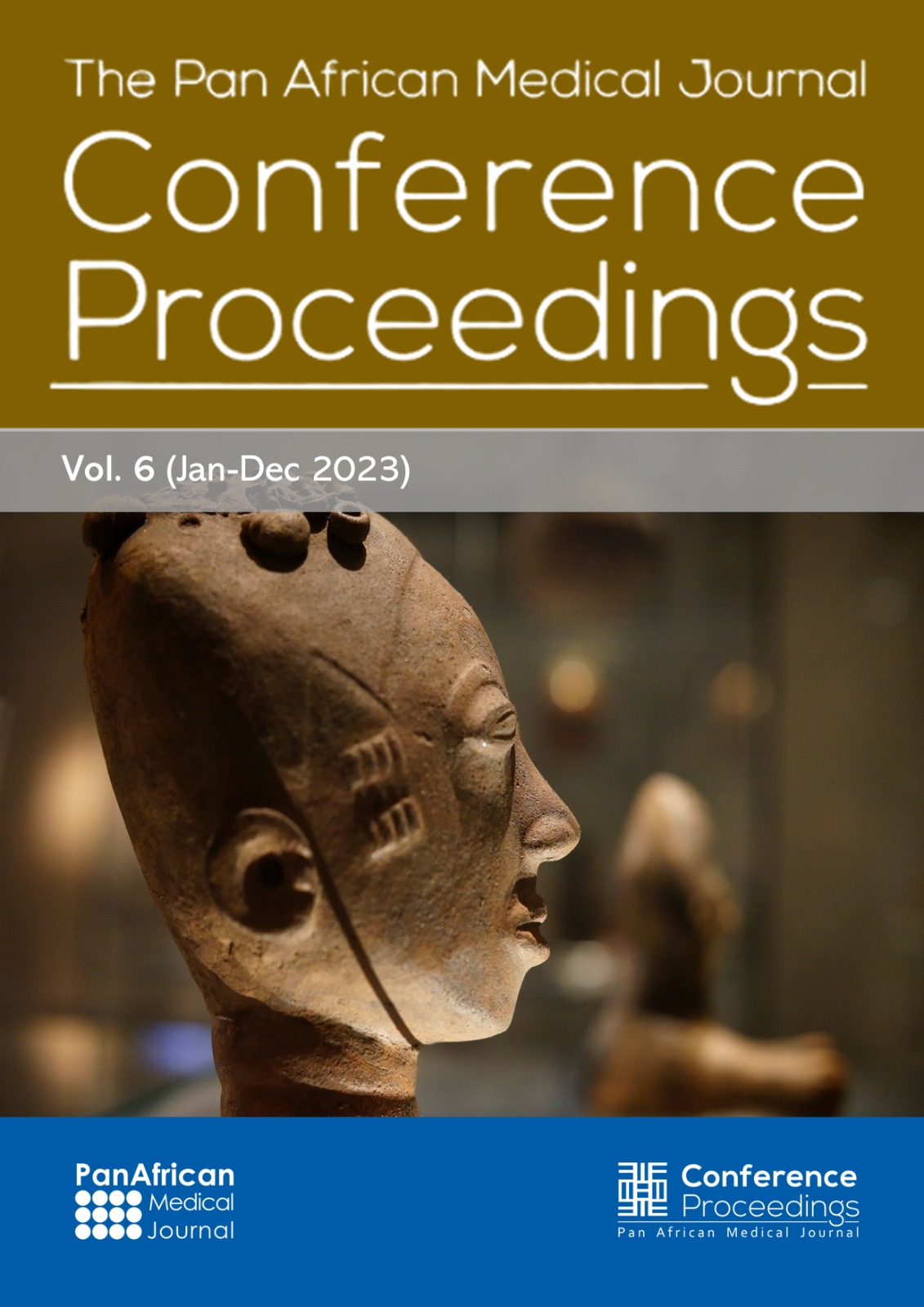Conference abstract
The CCPZ rabies surveillance program: an inclusive learning model for addressing one-health educational challenge in West African sub-region
Pan African Medical Journal - Conference Proceedings. 2017:5(2).13
Dec 2017.
doi: 10.11604/pamj-cp.2017.5.2.520
Archived on: 13 Dec 2017
Contact the corresponding author
Keywords: Curriculum, epidemiology, liberal art, one-health, rabies surveillance
Abstract
Rabies surveillance program and CCPZ inclusive learning model for addressing one-health educational challenge in West Africa
Babasola Olugasa1,2,&, Ayotunde Fasunla1,3
1Centre for Control and Prevention of Zoonoses, University of Ibadan, Ibadan, Nigeria, 2Department of Veterinary Public Health and Preventive Medicine, University of Ibadan, Ibadan, Nigeria, 3Department of Otorhinolaryngology, Faculty of Clinical Sciences, College of Medicine, University of Ibadan, Ibadan, Nigeria
&Corresponding author
Babasola Olugasa, Centre for Control and Prevention of Zoonoses, University of Ibadan, Ibadan, Nigeria
Introduction: in view of training needs to drive more effective one-health action against rabies in West Africa, it is critical to review rabies surveillance programmes in higher education and improve their one-health action goals. In this paper, two lead questions were posed, namely: How can trained lay persons be better utilized to facilitate rabies surveillance program at the community level? And how can inclusive learning in one-health mode be applied to post-graduate programmes for surveillance of rabies in West Africa?
Methods: data were collected from 4 major specialised data base search engines on liberal art and science approaches to rabies surveillance education. One thousand, one hundred and eighty-nine papers were retrieved. Predefined selection criteria on teaching outcome and nature of collaboration were used to select 7 of these papers for review, using systematic analysis of the literature.
Results: descriptive summary of modules in spatio-temporal epidemiology provided an inclusive concept note that integrated one-health approach into certificate of participation and degree programs at the University of Ibadan, Nigeria for disease surveillance through a Centre for Control and Prevention of Zoonoses (CCPZ). The modules provided evidence that epidemiology is a liberal art and science which provided more effective and efficient course of training to engage participants in rabies surveillance from diverse backgrounds, promoting students' questioning, and enriching the classroom teaching and learning experiences.
Conclusion: spatio-temporal epidemiology (epizootiology) instructional materials on rabies surveillance at the CCPZ offers novel approach to addressing one-health educational challenge for understanding the human/animal environment interface in West Africa.








